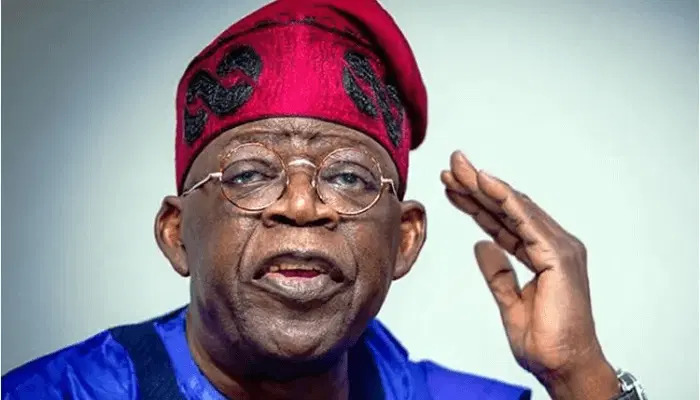Africa
Appreciating President Bola Tinubu’s Call For Peace In The Middle East, by Mariya Musa

In the face of one of the world’s most enduring conflicts, President Bola Tinubu’s recent diplomatic efforts to rally international support for a peaceful resolution in the Middle East have captured the admiration of many. As Nigeria’s leader, Tinubu’s call for calm, dialogue, and respect for human rights demonstrates a remarkable commitment to global peace, and his actions on this issue have positioned Nigeria as a strong, compassionate voice in international affairs.
Tinubu’s address at the extraordinary summit of the Organization of Islamic Cooperation (OIC) and the Arab League could not have come at a more crucial time. His stance against escalating violence, especially within Gaza, is deeply appreciated by those who value human life and dignity. By emphasizing a two-state solution as a fair, balanced resolution, Tinubu has reinforced Nigeria’s role as an advocate for justice and humanitarian principles.
In a region where tensions have run high for decades, Tinubu’s insistence on ending aggression is not only refreshing but deeply necessary. His message advocates for an inclusive peace process that acknowledges the rights and aspirations of both Israelis and Palestinians. This approach is built on mutual respect and the belief that dialogue is the only way forward—an ideology that aligns with Nigeria’s long-standing diplomatic principles.
The emphasis President Tinubu placed on proportionality and respect for international human rights laws reflects Nigeria’s core values. His diplomatic efforts reflect Nigeria’s standing as a country that values fairness, cooperation, and the pursuit of peace above all else. As he called upon leaders to honor the principles of restraint, many Nigerians felt a profound sense of pride in his dedication to the values that their nation holds dear.
Nigeria’s historical commitment to peaceful coexistence was brought into the global spotlight through Tinubu’s address. His stance is a reminder of Nigeria’s tradition of supporting oppressed people, advocating for dialogue, and working towards peaceful resolutions. This tradition is not new; it’s deeply woven into the fabric of Nigeria’s identity on the international stage.
Perhaps most compelling about President Tinubu’s stance is his emphasis on humanitarian concerns. His words echo the pain of innocent civilians affected by this conflict, urging the world to prioritize their welfare. This focus on human lives, rather than political interests, resonates with those who believe that leaders have a duty to safeguard human dignity.
It is also crucial to recognize the boldness in Tinubu’s call. In a world where some leaders may hesitate to address sensitive issues, Tinubu’s message is clear: Nigeria will not remain silent in the face of injustice. His bold stance elevates Nigeria’s moral authority, showing that the country stands firmly on the side of peace and humanity.
For many Nigerians, this approach from their president is both reassuring and inspiring. Tinubu’s proactive engagement with the OIC and the Arab League underscores his dedication to bridging divides. It illustrates his commitment to diplomacy and unity, values that are especially significant as Nigeria continues to grow its influence in regional and global matters.
Furthermore, Tinubu’s actions underscore his understanding of Nigeria’s role as a respected player in international diplomacy. His decision to address this issue at a high-profile summit shows his recognition that Nigeria’s voice matters. By participating actively in discussions on the Middle East, he has asserted that Nigeria can and should play a pivotal role in fostering global peace.
Tinubu’s leadership in this situation highlights his belief in the power of collaboration and alliances. His alignment with the OIC and the Arab League demonstrates Nigeria’s readiness to work with other nations, united by a shared goal of peace and security. His call for collective action speaks to the strength of multilateral cooperation in solving global challenges.
In thanking President Tinubu, it is essential to acknowledge the courage it takes to stand for peace amid a complex conflict. His commitment to this cause reflects a deep sense of empathy and responsibility. Many citizens appreciate his willingness to engage in difficult discussions and support a resolution grounded in justice.
Moreover, Tinubu’s actions convey his broader vision for Nigeria’s role in global affairs. By prioritizing peace in the Middle East, he has shown that Nigeria’s voice on human rights and humanitarian issues will not go unheard. This proactive diplomacy is an indicator of his ambition to see Nigeria flourish as a global advocate for peace and equity.
As Nigerians continue to observe his actions on the international stage, there is a strong sense of gratitude for his dedication to peace and stability. Tinubu’s approach embodies the ideals of a nation that cherishes human dignity and strives for unity among diverse peoples.
This gratitude is also a call to action for all Nigerians to support his vision for a compassionate and just global order. By standing behind his efforts, Nigerians reaffirm their commitment to values of empathy, respect, and peace that define their nation.
Thank you, President Tinubu, for showcasing Nigeria’s heart and courage to the world. Through your words and actions, you remind us all of the power of unity and the importance of diplomacy in addressing even the most challenging global issues. In your leadership, we see a brighter path forward, not only for Nigeria but for the world at large.
Mariya Musa, a 300 level student from Mass Communication Department University of Maiduguri.

























